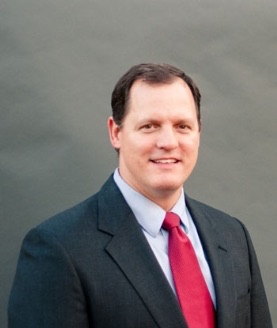[Dr. Williams] We are now approximately two months from a bilateral decompression of the greater occipital nerve with resection of the lesser occipital nerves in the back of the head. This was performed for post-traumatic occipital neuralgia with headaches and neck pain. Can you tell me how long you were having symptoms and what your symptoms were like prior to surgery?
[Patient] I was having symptoms for a little over a year. I got the initial injury on September 11, 2015. I was hit into a goalpost and I hit the goalpost with the back of my head along the left side here (gestures) and I was knocked clean out. I had concussion symptoms for a little over a year. I would have neck pain but I almost wouldn’t feel it as much because the headaches were so severe. They would start in the back and work their way forward and there would just be daily onset. The best I could hope for was a headache around a seven, but most of the time they were eights and nines, sometimes tens.
[Dr. Williams] So we were talking fairly severe headaches. These aren’t you “take two Advil and call me in the morning” headaches.”
[Patient] Exactly, I had to completely withdraw from school to kind of get a grip on things before I could return back and live a somewhat normal life. “Normal” (gestures).
[Dr. Williams] So affecting your ability to do work, affecting your ability to study?
[Patient] Oh yeah, without a doubt.
[Dr. Williams] And those went on for how long?
[Patient] It was about a year and two months before we saw Dr. Krutchfield and that’s when relief really started to take off. We were seeing doctors here and there . . . chiropractors, pain management specialists that would small things here and there that would a little bit. But nothing to really, like, make me better. It was kind of, “Does this help you get through the next few months? Okay good, let’s keep going with that.”
[Dr. Williams] And Dr. Krutchfield is one of our colleagues, a Neurologist who treats closed head brain injuries and minor brain trauma, and is really a leading expert in the medical treatment of refractory headaches and occipital neuralgia, and post concussive injuries. So when patients fail – you went through his protocol - and unfortunately, they were making you feel somewhat better, but they didn’t cure your headaches. And you were still having headaches. At what level were your headaches the day before we operated on you?
[Patient] Seven
[Dr. Williams] So still pretty severe?
[Patient] Still pretty severe.
[Dr. Williams] All on medication – three different medications.
[Patient] Yes sir.
[Dr. Williams] After a diagnosis made by Dr. Krutchfield, you were sent to see us. We felt you were a good candidate and we operated on you two months ago. What would you say your relief has been over the last two months?
[Patient] It’s been a nearly complete relief. Still having some fuzzy feelings in the back of my hand from surgery but that hasn’t given me a single headache since. It’s been night and day. I feel like it’s been life changing. I feel like myself again.
[Dr. Williams] What do you parents think?
[Patient] Same exact thing.
[Patient] It’s been amazing, since the day he got home, I mean of course there’s the surgical side effect pain and that type of thing, but he had surgery on Friday. By Monday he was his laughing, joking old self, wanting to home, I mean he was ready to get up and get moving. The migraines – it was horrible to see. It affected him in every area of his life, and just his personality. He just felt miserable all of the time. You could just see it. So, I mean, it has just been a complete change.
[Dr. Williams] Alright, so would you consider these fairly successful?
[Patient] Yes, without a doubt in my mind.
[Dr. Williams] Thank you very much.

